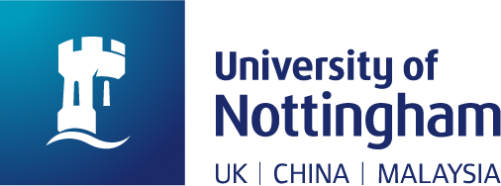October Dialogues 2016: 'Unspeakable Things Unspoken'
'Unspeakable Things Unspoken': Transatlantic Slavery - A Public Conversation
The bicentenary of the abolition of the slave trade in 2007 opened up a space to consider the place of slavery in the narrative of British history. The commemorations, dubbed by some as ‘Wilberfest’, were not without controversy with some historians and community activists critical of the focus on a self-congratulatory narrative of abolition. Since then there has been a notable shift in focus from Britain as emancipator to the much longer history of participation and profit. In 2013 the Legacies of British Slave-ownership project launched its open access database, for the first time drawing attention to the economic processes of slavery compensation and the multiple ways in which the system left its imprint on British society. The following year CARICOM announced its ten point plan for reparations, a move that sparked a huge public response in Britain and across Europe. In Britain, activism and academia have combined in the student-led movements that have demanded universities engage in a process of coming to terms with the(ir) imperial past, including links to slavery. Continued public interest in the history of slavery was demonstrated in the viewing figures for the recent BBC documentary Britain’s Forgotten Slave-owners - 1.6 million people tuned in to watch each episode. Slavery and its legacies remain with us, not least in the persistent forms of racialised thinking that continue to shape the social realities of the present.
This conference will examine the ways in which slavery has figured in public history in Britain. It will consider how academic history has shaped public perceptions of slavery and how public debate has challenged and inspired scholarship. It will give critical attention to the ways in which slavery and colonialism has shaped both our public and academic history institutions. Given the increasing emphasis on ‘impact’ within university research agendas the event will offer new possibilities for building relationships across academic and public history. Public history will be conceived of in its broadest sense and speakers will be invited from among museum and heritage professionals, artists, community historians, activists, academics, poets, performers and educators.
Programme:
October 12, 9.30am to 6:30pm (Dialogues)
October 12, 7:30pm to 9:00pm (Poetry, music and conversation)
October 13, 10.30am to 3.30pm (Nottingham and East Midlands activist workshop)
Day 1 begins with registration from 9.30am onward and the day's sessions will finish at 6:30pm. The evening event begins at 7:30pm and finishes at 9:00pm. There is no requirement to attend the whole day - you can book to attend either the day or evening event using the same booking process. We will serve a complimentary lunch and snacks for the evening reception. Please visit the official conference website for more info on the programme, the speakers, and the location.
There will be an evening of performance, conversation and music that will explore transatlantic slavery and its legacies through the work of renowned Jamaican poet Jean ‘Binta’ Breeze and guest artists and musicians. She is acclaimed for her inventive use of the dub artform. Breeze’s poetry gives voice to a wide range of disenfranchised people as well as personal, social, political and historical issues. Her work has engaged with themes of slavery and colonialism and linking the personal to the political. In this event, she considers the tangled relationship between gender, sexuality, class and race, with a particular focus on the experiences of Caribbean women. The evening will also feature performances by local and regional artists Michael Brome, Panya Banjoko and Marcus Joseph. This event has been co-curated with Renaissance One, a leading cultural activist organisation who have consistently pushed for greater diversity in the arts and who have a particular focus on narratives of race and culture.
Day 2 will run from 10.30am to 3.30pm in the same venue. This will be a half day workshop focused on local history activism in Nottingham and the East Midlands. Participants will be encouraged to come to the workshop with ideas for building new or expanding existing slavery public history projects. The meeting will act as a forum for brokering partnerships - local stakeholders from museums, archives, art galleries, Nottingham Trent University, the University of Nottingham, Midlands3Cities, community groups, creative practitioners, the council and relevant funding bodies will be invited to come.
There will be space available for exhibitions, leaflets, book stand etc. During lunch we will play a selection of short films showcasing some examples of public history work that has been undertaken.
Please use the official conference hashtag #OctoberDialogues
In collaboration with The Centre for Research in Race and Rights (C3R) at the University of Nottingham.
Event:
October Dialogues 2016: 'Unspeakable Things Unspoken'Dates:
12 Oct 2016 – 13 Oct 2016Supported by:

